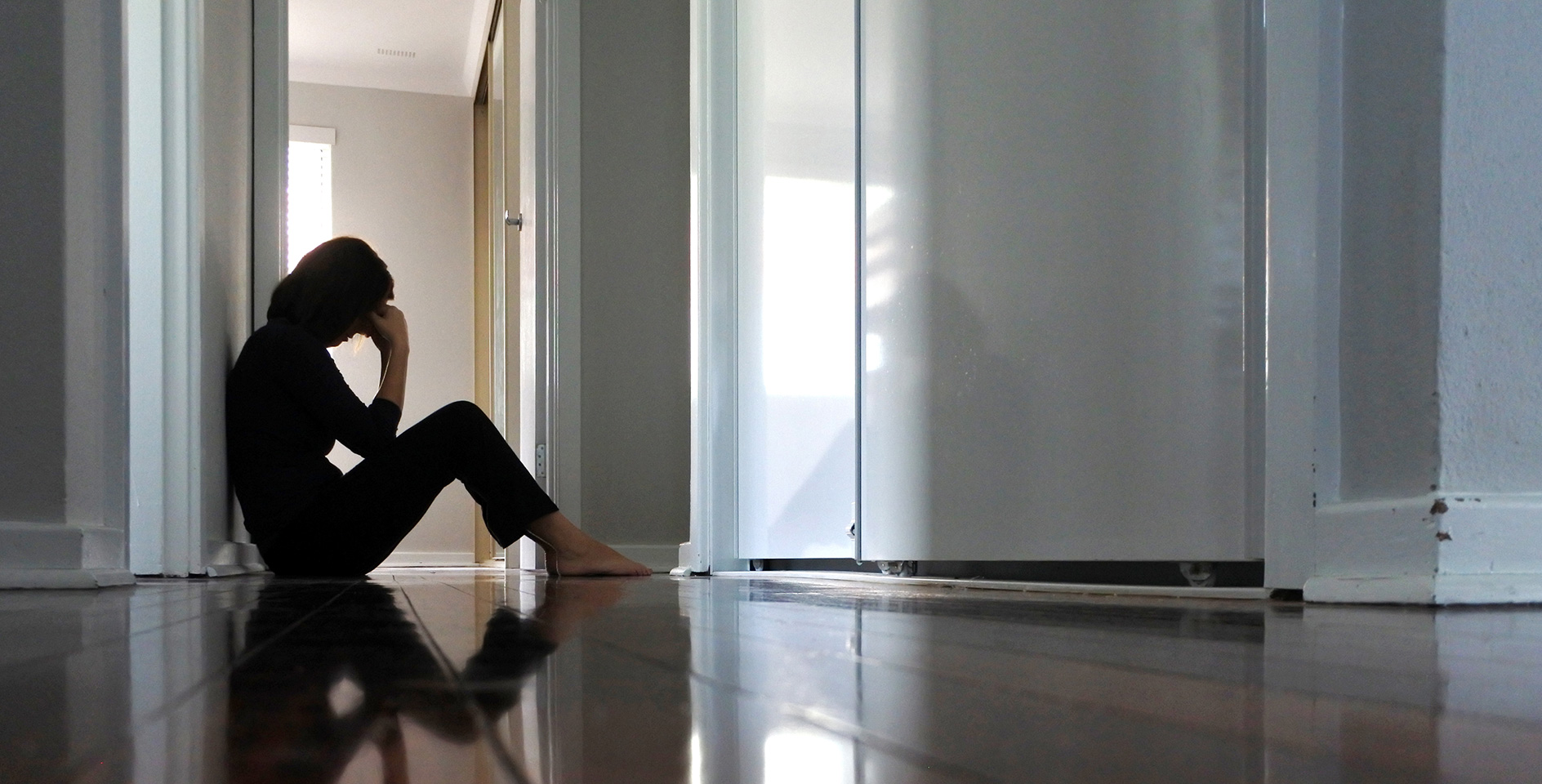Due to the pandemic, more emphasis has been placed on mental health. Stress, anxiety, and depression are at the forefront of discussions. However, mothers have suffered from stress long before COVID-19 hit. Careers, parental responsibilities, household chores, and guilt — especially during the holidays — can leave moms feeling burned out. Outside factors (i.e., societal upheaval, finances, etc.) only add to stressful feelings.
As a mom, stress can negatively influence the parent-child relationship. Chronically stressed mothers are more likely to be emotionally unavailable for their children and have a higher risk of developing mental health issues. Dealing with chronic stress can free moms to better handle the big emotions of their children and the day-to-day struggles of life.
Signs of stress
Though we hear a lot about stress, many of us don’t talk about it or understand its effects. What is stress? Stress can be defined as our body’s response to pressure that causes feelings of physical or emotional tension. When we initially encounter a danger or threat, our bodies react with a flight-or-fight response, known as acute stress, causing our nervous system to pump adrenaline into our bodies. If the threat or stress doesn’t subside, our body releases stress hormones. The result of these physiological responses includes: a faster pulse, an increase in blood pressure, changes in airways, extra oxygen to the brain, heightened senses, and changes in blood vessels. These responses are beneficial during times of danger.1Bruce S. McEwen (2007) Physiology and Neurobiology of Stress and Adaptation: Central Role of the Brain. Physiological Reviews, 87 (3), 873-904.
After the stressful event ends, the parasympathetic nervous system will then “reset” the body, stopping the rush of hormones. Problems with stress typically arrive when stress doesn’t cease and our bodies continue to pump stress hormones into our bodies. Acute stress becomes chronic stress.2Sharma DK (2018) Physiology of Stress and its Management. Journal of Medicine Study and Research, 1 (1).
How do you know if you are experiencing chronic stress? Chances are you “feel” stressed, but here are some warning signs:
- Physical: Chest pain, headaches, GI issues, fatigue, high blood pressure, heart issues, weakened immune system
- Behavioral: Sleep disturbances, irrational fears, anxiety attacks
- Cognitive: Rumination, difficulty concentrating
- Emotional: Irritability, crying, angry, bitterness, mood disorders
- Relational: Blame shifting, short-fused
- Spiritual: Disconnected, unrepentant sin, anger toward God, complacency
9 stress-reduction tips
If you can identify with the warning signs, you may be living in a state of chronic stress. So, what can you do about it? You can start by acknowledging two facts:
- All stress won’t fully cease to exist on this side of eternity. Stress is a natural consequence of the fall (Genesis 3). Original sin brought the commencement of brokenness into the world, and brokenness causes stress.
- God designed us with limitations, and those limitations are for our good. Operating within God’s boundaries can help reduce stress.
With those two things in mind, I want to share a few tips to improve stress levels and live within God’s limitations. It may not be possible to accomplish every suggestion all at once, so start small. Pick one or two stress-reducing items, and do those consistently. You can build upon your progress over time by adding other stress relievers.
Life-enhancing tasks: God has given us a brain to acquire knowledge. Learning a new skill helps stockpile cognitive reserves. Improvement in cognitive functioning provides a greater ability to deal with stress. For overwhelmed mothers with little free time, try to eliminate a life-draining item first (i.e., social media), and replace it with a life-enhancing task (i.e., educational audiobook).
Thinking patterns: A mother’s perception of her parental role and responsibilities plays a key factor in stress levels. Do you view motherhood as a God-given role or a burden? Believing motherhood is unimportant creates feelings of being trapped, which is stressful. Any thought regarding motherhood as insignificant needs to be taken captive, as it goes against God’s Word (1 Cor. 10:5) and harms the parent-child relationship. Thought logs and journals can help uncover negative thinking patterns or lies that trap us, while memorizing Scripture gives truth to combat negative thinking.
Physical activities: God created our bodies to depend upon certain physical activities. Those activities, as repeatedly shown in clinical research, also help reduce stress. Here are some of them:
- Exercise: Our bodies were made for movement. Things like exercise lead to anti-inflammatory responses, better physical health, improved memory, increased attention, and overall better brain functioning. Do you have trouble exercising because you are always with children? Put them in a stroller or have them ride their bikes, and get moving with them!3Jackson, EM.(2013) Stress Relief: The Role of Exercise in Stress Management. ACSM’s Journal of Health and Fitness. 17 (3). 14-19
- Sleep: Sleeping the recommended amount can be tough, especially for moms whose children don’t sleep through the night. However, it isn’t just moms with little kids who are sleep deprived. According to the Center for Disease Control (CDC), approximately 1 in 3 adults do not obtain the recommended amount of sleep, which is 7–9 hours. Sleep deprivation can contribute to weight gain, irritability, lack of concentration, fatigue, and health issues, all of which exacerbate stress. To get better sleep, try committing to an appropriate bedtime and nighttime routine, eliminating electronics an hour before bed, and consulting with your doctor if you struggle to fall asleep or stay asleep. And don’t forget to take naps.4https://www.google.com/url?q=https://www.apa.org/news/press/releases/stress/2013/sleep&sa=D&source=docs&ust=1637336158909000&usg=AOvVaw2jSfg81f3A9rSXyFa7cCQz
- Healthy eating: Our bodies need certain nutrients to thrive and feel good. A poor diet can lead to vitamin deficiency, creating a whole host of negative physical and emotional side effects. Eating healthy can reduce health issues, which in turn, reduces stress.
Rest: Research suggests relaxation and meditation are two avenues to counteract stress. As Christians, we know God has called us to rest (Sabbath), pray, and meditate specifically on his Word. God even modeled the Sabbath for us when he created the world. It’s okay, even commanded, to rest from our to-do lists.
Community: Throughout Genesis we see all the good things God made, until his statement in Genesis 2:18, “It is not good for man to be alone.” God created us for relationships. In fact, our brains are hardwired to need others.5Siegel, D., & Bryson, T. (2012) The Whole Brain Child. Bantam Book. Find other Christians to connect with so you can “carry each other’s burdens, and in this way you fulfill the law of Christ” (Gal. 6:2 NIV).
Enjoyment: God wants us to enjoy good things. He made the sunset beautiful, food delicious, and friendship necessary — for his glory and our pleasure. Pleasurable activities like vacations, date nights, and coffee with friends are all good things and can help reduce stress. The caution lies in making good things into idols. Moderation and right perception about pleasurable activities are key.
Ask for help: Acknowledging that we do not encompass every spiritual gift or every skill frees us to ask others for help. Partnering with others reflects God’s beautiful design of diversity and gives others opportunities to utilize their God-given gifts. Trying to do everything independently creates stress, and can be a form of pride, so ask others for help.
Flexibility: Chaos feels hectic and stressful. Why? We were created in God’s image, and he is not chaotic (1 Cor. 14:33 NIV). To help reduce chaos and stress, create a flexible schedule for you and your family.
Finances: Failing to use our finances wisely is a major source of stress. God gives us principles in Scripture that help us steward what he’s given us for his glory. Obeying God’s Word and putting money in its proper place reduces stress. How we use our resources will look different from person to person, but there is no doubt that Christians are not to be slaves to money. The Money Challenge by Art Rainer, and Redeeming Money by Paul David Tripp are two recommended reads for financial management.
Motherhood is a profound, but sometimes stressful, God-given role. He will give you what you need to care for your children. And remember, even amongst the stress, God is using motherhood to sanctify you and your children to look more like Christ.
For more information from Dr. Sarah Rainer on “The Overwhelmed Mom,” check out The Mom Village Podcast.










